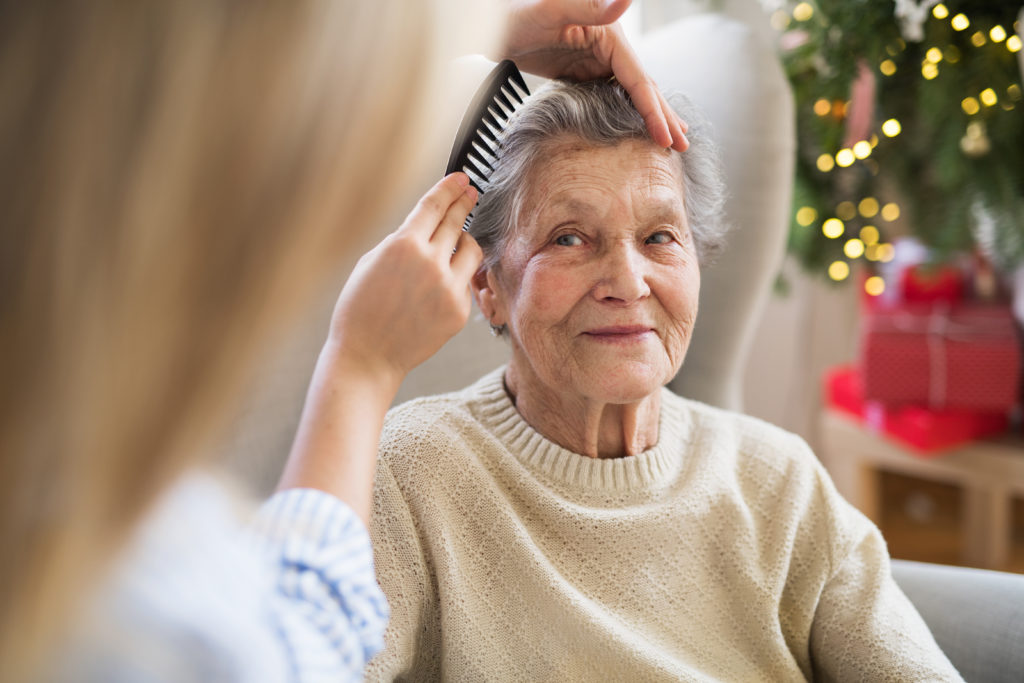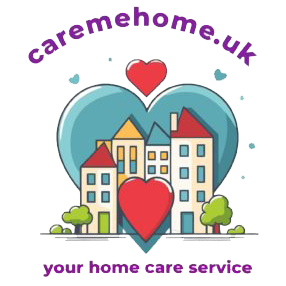
Personal Care as a Home Care Service
Personal care as a home care service involves assisting individuals with activities of daily living (ADLs) that they may find difficult to perform on their own due to age, disability, illness, or recovery from surgery. These services are designed to help individuals maintain their hygiene, dignity, and independence while ensuring their safety and comfort at home. Personal care services are typically provided by trained caregivers who are skilled in delivering compassionate and respectful support.
Components of Personal Care Services
- Assistance with Personal Hygiene
- Bathing and Showering: Helping the individual with bathing or showering, ensuring they maintain personal cleanliness and feel refreshed.
- Grooming: Assisting with hair care, shaving, and nail care to help the individual look and feel their best.
- Oral Hygiene: Helping with brushing teeth, flossing, and denture care to maintain oral health.
- Dressing and Undressing
- Choosing Appropriate Clothing: Assisting the individual in selecting weather-appropriate and comfortable clothing.
- Dressing Assistance: Helping with putting on and taking off clothes, including managing buttons, zippers, and other fasteners.
- Adaptive Clothing: Assisting with specialized clothing for individuals with limited mobility or other specific needs.
- Toileting and Incontinence Care
- Toileting Assistance: Helping the individual get to and from the toilet, as well as assisting with any necessary hygiene afterward.
- Incontinence Management: Providing support for individuals with incontinence, including changing adult briefs, pads, and ensuring skin care to prevent irritation.
- Catheter and Ostomy Care: Assisting with the care and maintenance of catheters or ostomies, ensuring hygiene and comfort.
- Mobility Assistance
- Transferring and Positioning: Helping the individual move from bed to chair, wheelchair, or other locations, ensuring their safety and comfort.
- Walking and Exercise: Assisting with walking, whether with or without mobility aids, and encouraging light exercises to maintain strength and mobility.
- Fall Prevention: Implementing strategies to prevent falls, such as using assistive devices, ensuring clear pathways, and supervising movements.
- Feeding and Meal Assistance
- Meal Preparation: Preparing meals that meet the individual’s dietary needs and preferences, ensuring they receive proper nutrition.
- Feeding Assistance: Helping the individual with eating, whether by cutting food, bringing food to their mouth, or providing full feeding support.
- Special Diets: Preparing and assisting with specialized diets, such as low-sodium, diabetic-friendly, or pureed foods, as prescribed by a healthcare provider.
- Medication Reminders
- Medication Adherence: Reminding the individual to take their medications at the correct times and dosages, as prescribed by their healthcare provider.
- Supervision of Medication Intake: Observing the individual as they take their medication to ensure compliance and prevent missed doses.
- Organizing Medications: Assisting with the organization of medications, such as setting up pill boxes or managing prescriptions.
Benefits of Personal Care Services
- Maintains Independence
- Enables individuals to remain in their own homes and maintain a level of independence by providing support with daily tasks they can no longer manage alone.
- Allows individuals to continue living in familiar surroundings, which can be particularly beneficial for their emotional well-being.
- Enhances Quality of Life
- Improves the individual’s overall quality of life by ensuring they maintain their personal hygiene, dignity, and comfort.
- Provides emotional support and companionship, which can alleviate feelings of loneliness and isolation.
- Promotes Safety and Well-Being
- Reduces the risk of accidents and injuries by providing assistance with mobility, bathing, and other potentially hazardous activities.
- Ensures that individuals receive the care they need to manage chronic conditions, incontinence, or other health issues.
- Relieves Family Caregivers
- Offers respite for family caregivers by taking over the more physically demanding and time-consuming aspects of personal care.
- Provides peace of mind to families, knowing their loved one is receiving professional care and attention.
- Customized to Individual Needs
- Care plans are personalized to meet the specific needs and preferences of each individual, ensuring that they receive the appropriate level of care.
- Flexibility in care delivery, allowing for adjustments based on the individual’s changing needs.
Who Can Benefit from Personal Care Services?
- Elderly Individuals: Seniors who need help with daily activities due to age-related challenges such as mobility issues, arthritis, or cognitive decline.
- Individuals with Disabilities: Those with physical or cognitive disabilities who require assistance with personal care tasks to maintain their hygiene and well-being.
- Post-Surgery or Illness Recovery: Individuals recovering from surgery, illness, or injury who need temporary assistance with personal care during their recovery period.
- People with Chronic Conditions: Those managing chronic illnesses such as diabetes, heart disease, or respiratory conditions that impact their ability to perform daily tasks.
- Individuals with Dementia or Alzheimer’s: Those who need help with daily activities due to memory loss, confusion, or other cognitive impairments.
Conclusion
Personal care as a home care service is essential for individuals who need assistance with daily activities to maintain their hygiene, dignity, and independence. By providing support with personal tasks such as bathing, dressing, toileting, and feeding, personal care services ensure that individuals can continue to live comfortably and safely in their own homes. These services not only enhance the individual’s quality of life but also offer crucial relief and peace of mind to family caregivers, making personal care an integral part of comprehensive home care.
